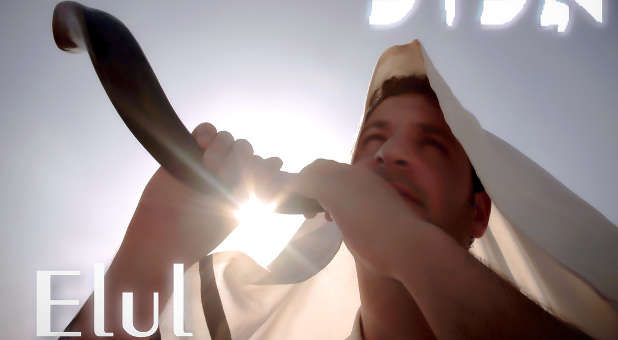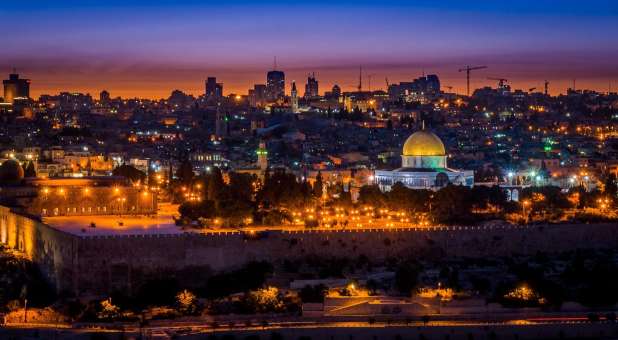The Fall Feasts of Israel, the most important appointments of the biblical calendar, are just around the corner.
These three feasts: The Feast of Trumpets (Rosh HaShanah), the Day of Atonement (Yom Kippur), and the Feast of Tabernacles (Sukkot), hold great biblical, historical, and prophetic significance for believers in Yeshua (Jesus) as they point to the events surrounding His second coming (This will be explained more fully in my next article for Standing With Israel). The sixth month of the Hebrew calendar, the month of Elul, (beginning August 16th this year) is traditionally a time of spiritual preparation as Jewish people anticipate these upcoming High Holy Days.
One of the customs that is practiced during this time is the reciting of Selichot, special prayers for forgiveness, also said on days of fasting. In the Sephardic Jewish tradition, these prayers are said throughout the month, whereas in the Ashkenazic Jewish tradition, they are added to the morning synagogue services near the end of the month. These prayers continue throughout the High Holy Days as individuals consider the profound issues of life and death, sin and forgiveness.
The significance given to these prayers in traditional Jewish thinking shows up in the three levels of forgiveness which people hope to attain. Traditionally, these levels are identified by three Hebrew terms: selichah (pardon), mechilah (wiping away), and kapparah (atonement). They are all related to forgiveness, but each has its own shade of meaning.
In Israel, a common word for “pardon” or “excuse me” is selichah. This is the first step a person takes if a sin has been committed, whether against God or man. One asks for forgiveness, saying to the offended party, “I am sorry for what I did; I sincerely regret having done it, and will never do it again.” It is considered cruel not to accept a person’s sincere apology.
Mechilah is usually translated as “wiping away,” It is a response to the request, “Can our relationship be as it was before I offended you?” At this level, the relationship gets a “reset button.” It is more difficult to accomplish than selichah, but not impossible.
Kapparah is usually translated as “atonement,” (as in the Day of Atonement). This level of forgiveness is the deepest of all as it deals with a person’s guilty conscience. It is recognized that only God can heal and comfort the conscience of a person. In traditional Jewish circles, “kapparah” completes this three-part process on Yom Kippur.
What can truly bring the deepest level of forgiveness between man and God? We remember how the people of Israel sinned at the giving of the Torah at Mt. Sinai when they created and worshipped a golden calf. Beginning in the month of Elul, Moses prayed to God for Israel’s spiritual restoration. God’s favorable response was to provide a new set of tablets inscribed with the Ten Commandments, and to renew His Presence in the people’s midst.
It is said by the sages that when Moses went up the second time to receive the two tablets, the people of Israel blew the shofar to remind themselves not to fall into idol worship ever again. Thus the shofar is also blown at the beginning of the month of Elul as a reminder of our frailty and of how easy it is to stumble.
The New Covenant (New Testament) shows us that there is One who can forgive sins fully, even to the core of our being and to the cleansing and healing of our souls (Matthew 9:6). Because of Yeshua’s once-and-for-all atonement, there is never a need for any other offering for sin (Hebrews 10:18). As we confess our sins, Messiah’s atonement is enough to enjoy the renewal of our souls before God (1 John 1:9), and our prayers are now of praise and thanksgiving.
In Messiah’s atonement, we have the grace of God to forgive one another for any offense committed against us (Ephesians 4:32). Indeed, by this same grace, we can not only forgive but also comfort any who are guilt ridden by their consciences (2 Corinthians 2:7). In Messiah’s atonement is full forgiveness, not merely restoration to a previous relationship, but “forgiveness of sins and an inheritance among those who have been sanctified by faith” (Acts 26:18).
Therefore, let us be prepared indeed! As we anticipate Messiah’s return, let us prepare our hearts that we will not be “ashamed at His coming” (1 John 2:28). And as we approach the High Holy Days during this month of Elul, let us commit to pray that not only will we be prepared, but that Israel and all people will be prepared to meet with the Lord as a result of the true forgiveness which comes only through Messiah. “Prepare to meet thy God, O Israel!” (Amos 4:12).
Dr. Sam Nadler is a Jewish believer in Jesus and has been in Messianic Jewish ministry for over 40 years. Sam is the president of Word of Messiah Ministries, which is bringing the Good News to the Jew first but not to the Jew only, and planting Messianic Congregations in Jewish communities worldwide. To equip the Body of Messiah in our shared calling, Sam has written multiple books on Jewish evangelism, discipleship, and the Feasts of Israel. Sam mentors Messianic leaders around the world, and regularly holds leadership conferences to train and encourage congregation planters in their vital ministry. For more information and resources, visit: www.wordofmessiah.org.
See an error in this article?
To contact us or to submit an article























